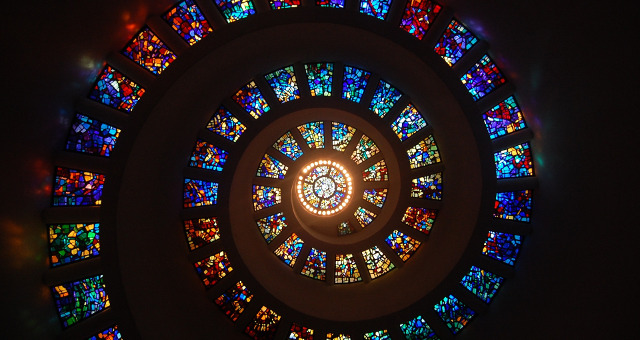
Spirituality and religion are powerful forces – whether for good or for evil. Spirituality can help us find the answers to some of our most profound existential questions or it can be used to manipulate and control us. It can bind people together in the cause of love, compassion, and making the world a better place or it can damage relationship and tear loved ones apart. Whether spirituality is a force for good or ill rests largely upon what form it takes – healthy or toxic. Here in part one, we explore what toxic spirituality looks like and the damage it causes.
Healthy spirituality is not about guilt.
I know this one’s difficult to believe because guilt is so much a part of so many people’s experiences with organized religion and religious institutions. Yet, guilt is really only useful to the extent that it calls our attention to how we’ve hurt others and damaged relationship. Guilt is meant to call us to repentance and reconciliation, not as a lifestyle or an ascetic tool for self-punishment.
Healthy spirituality is not about control.
In my experience, it is people – not God – who obsess over how to control other people. God extends us freewill and, with it, the opportunity to choose what is good or what is bad for ourselves. The hope is that, over time, we learn to more consistently choose what is good and, not under threat of punishment, but because we taste and see that the good really is good – beautiful, true, life-giving, and soul-satisfying. This isn’t to say that there aren’t consequences for our poor choices – there are plenty. But, God leaves space for us to wrestle and to make our choices. And, God walks patiently with us in the journey, encouraging our faltering steps toward God, and always offering us redemption and reconciliation when we are ready to draw near.
Healthy spirituality is not obsessed with behavior management.
Many religious communities are really hung up on “sin.” Their primary objectives appear to be purifying the faithful of their sin and then keeping them holy. The only problem is that sin, hurting others and damaging relationships, appears to be an on-going part of the human condition. The fallacy that people can be sanctified to perfection, in this lifetime, is a dangerous one. In my experience, it leads not to increased holiness, but to people hiding their sin – their bad habits, their self-indulgent pleasures, their dehumanizing addictions, and their self-centeredness. All this unhealthiness is driven underground where people are left to manage it as best they can in shame and isolation. The results are lives riddled with secret sin, full-blown addictions, hypocrisy, profound moral failings, and people who have become far too comfortable with compartmentalizing their religious lives separate from the rest of their lives.
Healthy spirituality is not about shame.
Shame, like guilt, has limited value. To the extent that shame reminds us that we are finite, imperfect, and not God, it is valuable. If it also calls our attention to how we’ve hurt others and damaged relationship, then it serves a purpose. But, shame that causes us to see ourselves as fundamentally unlovable, unforgiveable, beyond redemption, or defective is not of God.
Healthy spirituality is not passive aggressive.
Many religious communities value the appearance of righteousness over honest expressions of thought and feeling. When people feel that they cannot be honest about their frustration, anger, and resentment toward others, or believe that these feelings are sinful and unacceptable, they often disown these feelings and push them out of awareness. The net result is that the community has the appearance of interpersonal harmony, but as the community gossip about, unfairly criticize, harshly judge, and undermine loving efforts to one another.
Healthy spirituality is not about rigid dogma and having all the right beliefs.
Toxic religious institutions tend to be judgmental, legalistic, and to demand absolute, unquestioning adherence to a rigid dogma. In these communities, having the right theology and set of beliefs is of paramount importance. Matters of heart-change – growing in love, compassion, and kindness – become secondary. Often, relationships are torn apart as the faithful find it increasingly difficult to relate to others who don’t share their all-important religious beliefs.
Healthy spirituality is not about excluding others.
Toxic spirituality focuses on who’s in and who’s out – who’s right and who’s wrong. In toxic religious institutions, the love of God becomes a commodity that the leaders bestow upon the righteous – those who’ve adopted their dogma and who follow the rules. Everyone else is presumed to fall outside the love and grace of God. Those of other religious backgrounds, agnostics, and atheists are viewed as heretical, condemned by God, inferior, and maybe even dangerous to the faithful. Toxic spirituality creates and reinforces divisions among people.

